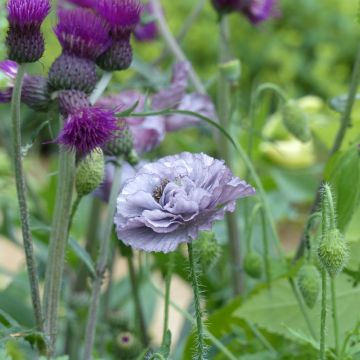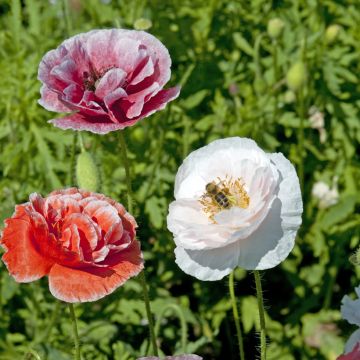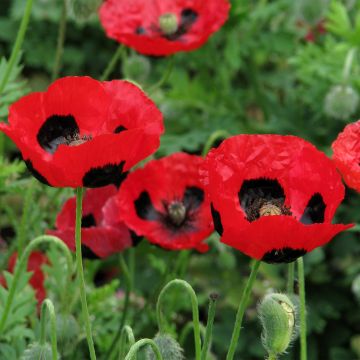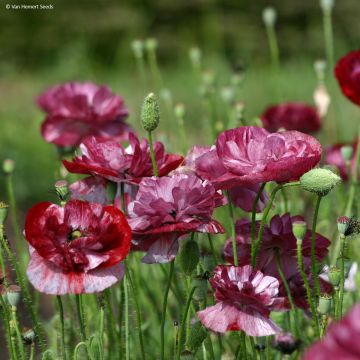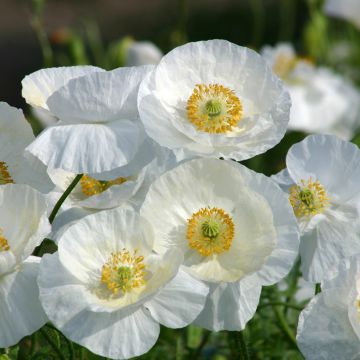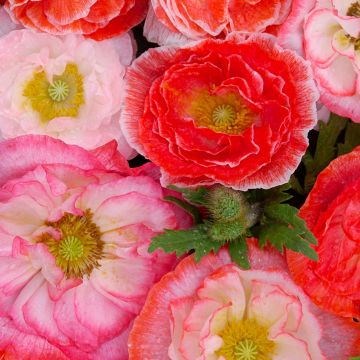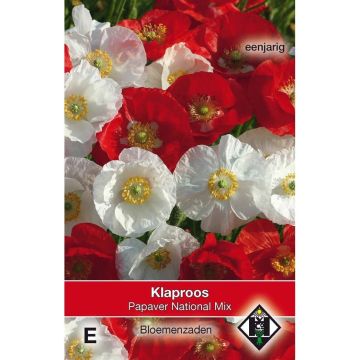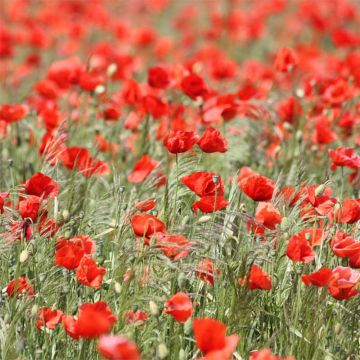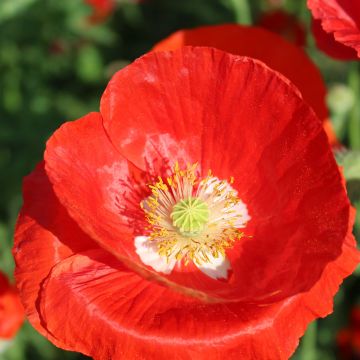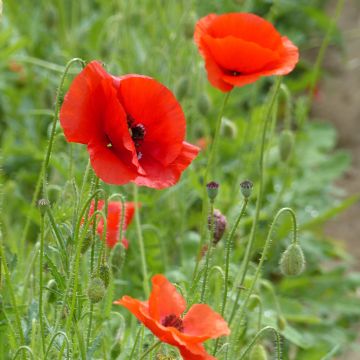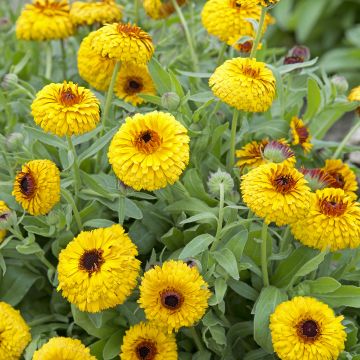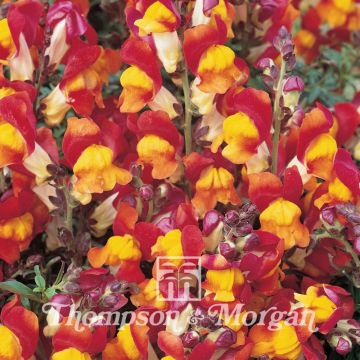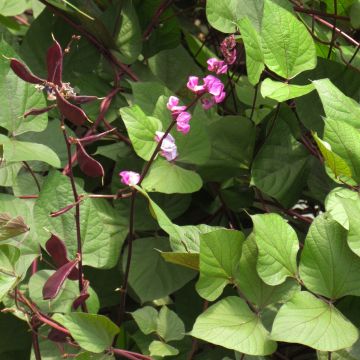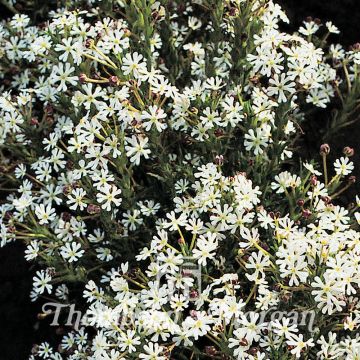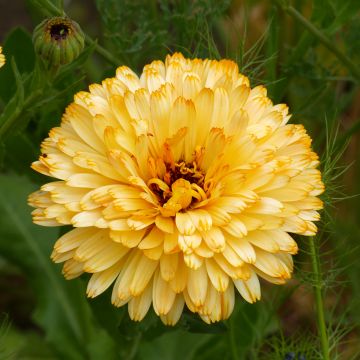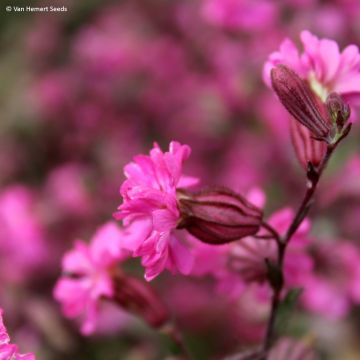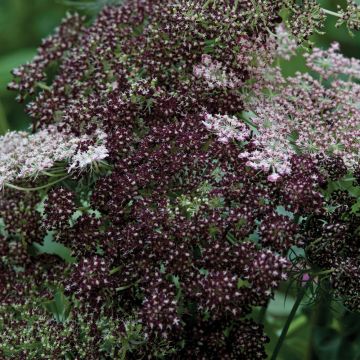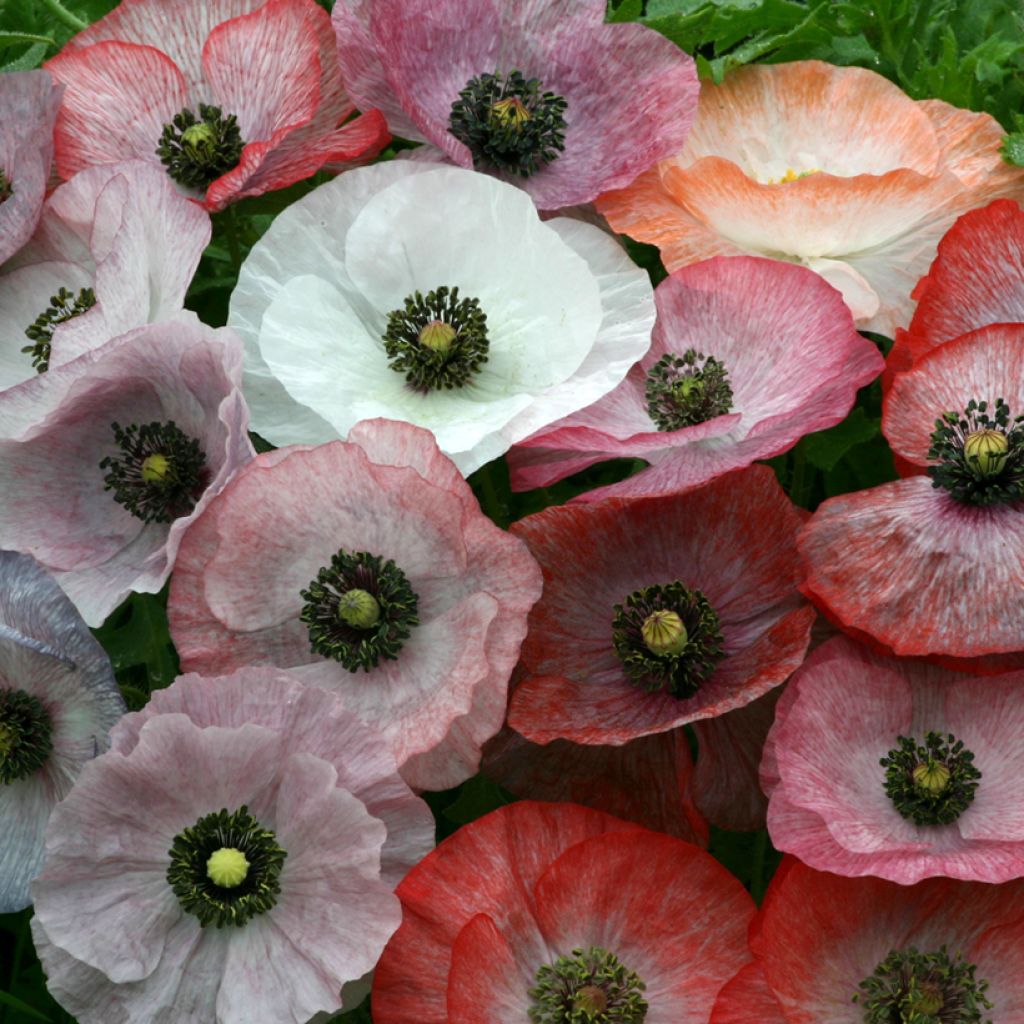

Papaver rhoeas Parelmoer
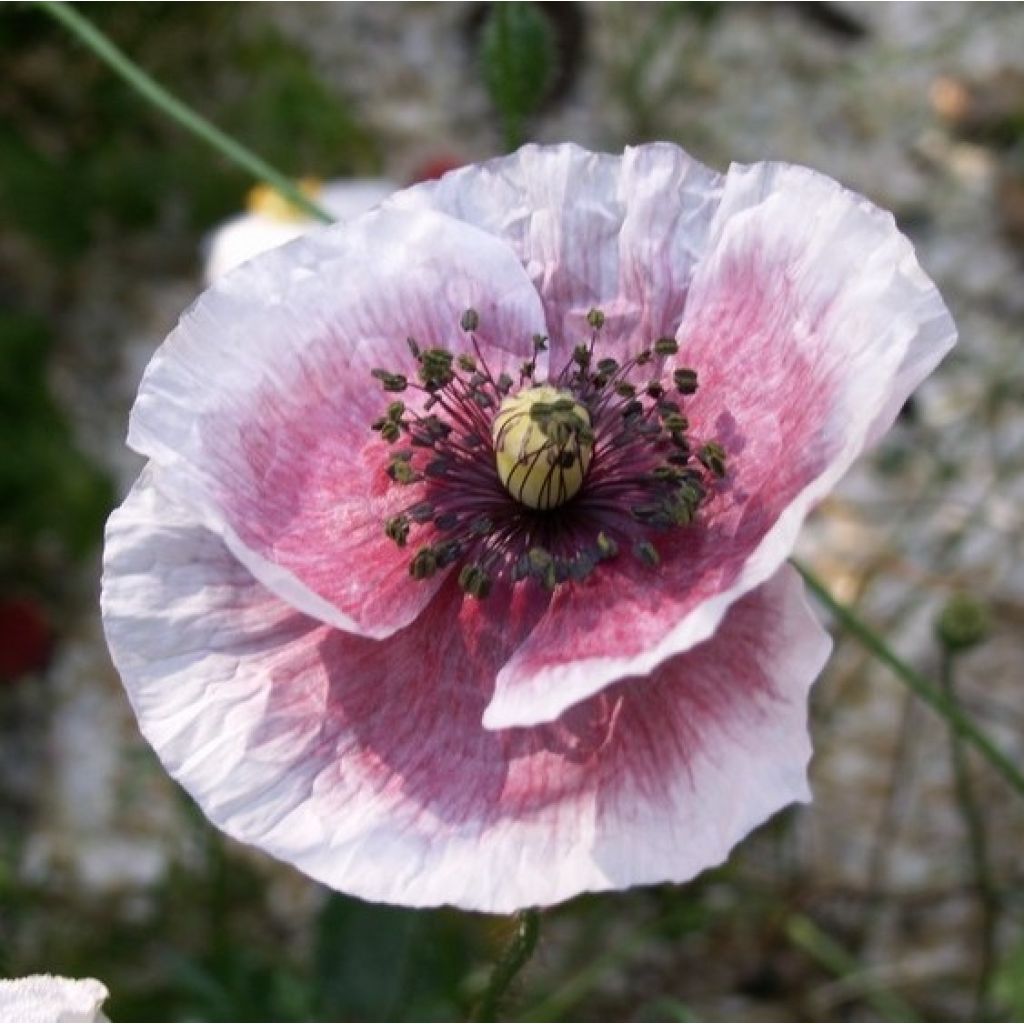

Papaver rhoeas Parelmoer
Papaver rhoeas Parelmoer
Papaver rhoeas Parelmoer
Common Poppy, Corn Poppy, Field Poppy, Flanders Poppy, Red Poppy, Red Weed
Absolutely magnificent! Delicate and varied flowers, each one is a work of art from nature, it's a pleasure to contemplate them :-)
slanterne , 21/10/2025
Special offer!
Receive a €20 voucher for any order over €90 (excluding delivery costs, credit notes, and plastic-free options)!
1- Add your favorite plants to your cart.
2- Once you have reached €90, confirm your order (you can even choose the delivery date!).
3- As soon as your order is shipped, you will receive an email containing your voucher code, valid for 3 months (90 days).
Your voucher is unique and can only be used once, for any order with a minimum value of €20, excluding delivery costs.
Can be combined with other current offers, non-divisible and non-refundable.
Home or relay delivery (depending on size and destination)
Schedule delivery date,
and select date in basket
This plant carries a 6 months recovery warranty
More information
We guarantee the quality of our plants for a full growing cycle, and will replace at our expense any plant that fails to recover under normal climatic and planting conditions.
Would this plant suit my garden?
Set up your Plantfit profile →
Description
This selection of Papaver rhoeas Parelmoer brings together some of the most romantic forms that can be found in field poppies. These flowers, generally single, sometimes semi-double, colour their crumpled petals with smoky and pastel shades, with infinite delicacy. From white to pearl gray and silver blue, from peach to smoky pink and light red, the colours blend and merge at random, composing a delightful watercolour scene. These annual poppies are undemanding plants which grow and self-seed quietly in the sun. They tolerate poor and even heavy, limestone and degraded soil. Their sowing is foolproof.
The field poppy, also known as corn poppy or simply poppy, is an annual plant of the Papaveraceae family, native to Asia Minor. 'Parelmoer' is a mixture of plants derived from this adorable weed, or more precisely from the 'Shirley Poppy' beloved by our English friends. We owe the wonderful selections offered in seed catalogues today to the English painter and plant enthusiast Cedric Morris (1889-1982), who used to roam the countryside of Sussex in search of the prettiest poppies that had escaped from gardens. These fast-growing plants reach a height of 60 to 65 cm (24 to 26in) in flower in one season, with a width of 30 cm (12in). With a fragile appearance, like their thin, rough and sparsely branched stems, these plants form clumps of alternate leaves, cut into narrow and toothed lobes, whose full power is revealed when they inevitably emerge from freshly disturbed soil, from seeds that are sometimes very old. When the stem is broken, it releases a white, milky sap. The summer flowering extends from June to August, depending on the climate and the sowing date. The open cup-shaped flowers have one or sometimes several rows of silky, slightly crumpled petals, solid or bicoloured with lighter edges, in various, always very refined tones. The centre is provided with numerous stamens with black-blue anthers. The flowers give way to fruits that are capsules containing a large number of seeds that will be dispersed by the wind.
At ease in wild, monastic and unmaintained gardens, poppies allow you to quickly and effortlessly create seas of flowers moving in their simplicity, in perfect harmony with the summer light. Although not very long-lasting in bouquets, poppy flowers have a great charm in flowerbeds in the company of irises, large daisies, big peonies, or the shifting foliage of grasses. This annual plant, like cosmos, is unmatched for filling embankments around new constructions, or empty spaces between annuals or large late-flowering perennials such as sunflowers that take over in full sun. If you still want to make bouquets with its flowers, you will need to cauterize the stems where they have been cut, thus preventing the flowers from wilting during the day.
Report an error about the product description
Flowering
Foliage
Plant habit
Botanical data
Papaver
rhoeas
Parelmoer
Papaveraceae
Common Poppy, Corn Poppy, Field Poppy, Flanders Poppy, Red Poppy, Red Weed
Cultivar or hybrid
Other Flanders Poppy seeds
View all →Planting and care
Sow poppy seeds directly outdoors in the spring. Choose a sunny spot with well-prepared soil. Sow the fine seeds just below the surface of the soil, mixing them with sand or fine compost to sow less densely. Water regularly, especially during dry periods. Germination usually takes 18 to 22 days.
When the young poppy plants are large enough to handle, thin out the seedlings and space them 30cm (12in) apart. They should not lack water or food during flowering in summer. These plants easily self-seed in the garden. Remove faded flowers if you want to prevent spontaneous seeding.
While poppies prefer clayey and limestone soils, they are undemanding plants that adapt to most well-worked soils. Their seeds retain their viability for a long time, and it is not uncommon to see seedlings reappear years after a failed sowing, following soil disturbance.
Important note: all poppies are toxic. However, the seeds produced by the species P. somniferum and P. paeoniflorum can be consumed. Generally, the seeds are used in bakery recipes (bread, brioche etc)
Sowing period
Intended location
-
, onOrder confirmed
Reply from on Promesse de fleurs
Similar products
Haven't found what you were looking for?
Hardiness is the lowest winter temperature a plant can endure without suffering serious damage or even dying. However, hardiness is affected by location (a sheltered area, such as a patio), protection (winter cover) and soil type (hardiness is improved by well-drained soil).

Photo Sharing Terms & Conditions
In order to encourage gardeners to interact and share their experiences, Promesse de fleurs offers various media enabling content to be uploaded onto its Site - in particular via the ‘Photo sharing’ module.
The User agrees to refrain from:
- Posting any content that is illegal, prejudicial, insulting, racist, inciteful to hatred, revisionist, contrary to public decency, that infringes on privacy or on the privacy rights of third parties, in particular the publicity rights of persons and goods, intellectual property rights, or the right to privacy.
- Submitting content on behalf of a third party;
- Impersonate the identity of a third party and/or publish any personal information about a third party;
In general, the User undertakes to refrain from any unethical behaviour.
All Content (in particular text, comments, files, images, photos, videos, creative works, etc.), which may be subject to property or intellectual property rights, image or other private rights, shall remain the property of the User, subject to the limited rights granted by the terms of the licence granted by Promesse de fleurs as stated below. Users are at liberty to publish or not to publish such Content on the Site, notably via the ‘Photo Sharing’ facility, and accept that this Content shall be made public and freely accessible, notably on the Internet.
Users further acknowledge, undertake to have ,and guarantee that they hold all necessary rights and permissions to publish such material on the Site, in particular with regard to the legislation in force pertaining to any privacy, property, intellectual property, image, or contractual rights, or rights of any other nature. By publishing such Content on the Site, Users acknowledge accepting full liability as publishers of the Content within the meaning of the law, and grant Promesse de fleurs, free of charge, an inclusive, worldwide licence for the said Content for the entire duration of its publication, including all reproduction, representation, up/downloading, displaying, performing, transmission, and storage rights.
Users also grant permission for their name to be linked to the Content and accept that this link may not always be made available.
By engaging in posting material, Users consent to their Content becoming automatically accessible on the Internet, in particular on other sites and/or blogs and/or web pages of the Promesse de fleurs site, including in particular social pages and the Promesse de fleurs catalogue.
Users may secure the removal of entrusted content free of charge by issuing a simple request via our contact form.
The flowering period indicated on our website applies to countries and regions located in USDA zone 8 (France, the United Kingdom, Ireland, the Netherlands, etc.)
It will vary according to where you live:
- In zones 9 to 10 (Italy, Spain, Greece, etc.), flowering will occur about 2 to 4 weeks earlier.
- In zones 6 to 7 (Germany, Poland, Slovenia, and lower mountainous regions), flowering will be delayed by 2 to 3 weeks.
- In zone 5 (Central Europe, Scandinavia), blooming will be delayed by 3 to 5 weeks.
In temperate climates, pruning of spring-flowering shrubs (forsythia, spireas, etc.) should be done just after flowering.
Pruning of summer-flowering shrubs (Indian Lilac, Perovskia, etc.) can be done in winter or spring.
In cold regions as well as with frost-sensitive plants, avoid pruning too early when severe frosts may still occur.
The planting period indicated on our website applies to countries and regions located in USDA zone 8 (France, United Kingdom, Ireland, Netherlands).
It will vary according to where you live:
- In Mediterranean zones (Marseille, Madrid, Milan, etc.), autumn and winter are the best planting periods.
- In continental zones (Strasbourg, Munich, Vienna, etc.), delay planting by 2 to 3 weeks in spring and bring it forward by 2 to 4 weeks in autumn.
- In mountainous regions (the Alps, Pyrenees, Carpathians, etc.), it is best to plant in late spring (May-June) or late summer (August-September).
The harvesting period indicated on our website applies to countries and regions in USDA zone 8 (France, England, Ireland, the Netherlands).
In colder areas (Scandinavia, Poland, Austria...) fruit and vegetable harvests are likely to be delayed by 3-4 weeks.
In warmer areas (Italy, Spain, Greece, etc.), harvesting will probably take place earlier, depending on weather conditions.
The sowing periods indicated on our website apply to countries and regions within USDA Zone 8 (France, UK, Ireland, Netherlands).
In colder areas (Scandinavia, Poland, Austria...), delay any outdoor sowing by 3-4 weeks, or sow under glass.
In warmer climes (Italy, Spain, Greece, etc.), bring outdoor sowing forward by a few weeks.






























